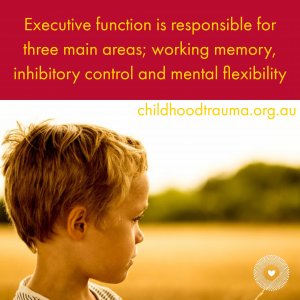
Helping kids with a history of prenatal substance exposure
This article was authored by guest blogger Dr Stacy Blythe foster carer,
Registered Nurse and Senior Lecturer in the
School of Nursing and Midwifery at Western Sydney University.
Many of the children who enter into out of home care have a history of prenatal substance exposure. That is, their biological mother may have been using drugs of addiction, alcohol or harmful medications during pregnancy. Some of these children will be born addicted and require hospitalisation as they withdraw from these harmful substances. However, some of these children do not experience withdrawal and present as a relatively healthy newborn. Irrespective of whether a baby experiences withdrawal, there are a number of long-term developmental and behavioural consequences often associated with prenatal substance exposure.
Over the past few years I have spent a considerable amount of time providing training for foster and kinship carers regarding the care of substance exposed infants and children. It is so important for carers to understand that some of the consequences of prenatal substance exposure don’t present until later in life. This understanding can assist carers when/if challenging behaviours, developmental delays and learning difficulties begin to emerge.

Prenatal substance exposure can interfere with the way the brain develops. This interference can cause difficulties in the child’s executive functioning. Executive function is responsible for three main areas; working memory, inhibitory control and mental flexibility. Difficulty in one or more of these areas often leads to learning and behavioural difficulties.
Working memory enables us to hold, process and use information. Children who struggle with working memory may have difficulty following more than one instruction at a time. In a classroom situation, if the child is given several instructions, s/he may follow the first few but then forget what comes next. These children may appear to not follow directions, when in fact, they cannot remember the directions.
Inhibitory control allows us to stop and think about something, albeit sometimes briefly, before acting. Children with poor impulse control will often act on a whim with little or no consideration for the possible consequences of their actions. In a social situation, if a child desires to play with a toy that another child has, s/he may physically take the toy without asking which will obviously distress the other child. These children may appear defiant as they can often articulate why the displayed behaviour isn’t acceptable, but are unable to control their impulses and stop the behaviour.

Mental flexibility enables us to think about things in different ways, to identify multiple solutions to a problem. Children with poor mental flexibility are generally very reliant upon routine and do not adapt well to change. An adolescent with poor mental flexibility may find driving a car to be quite challenging when other drivers on the road do something unpredictable. These children may benefit from extended periods of supervised practice.
Although they are predisposed, not all children with a history of substance exposure experience executive function difficulties. However, difficulties in one or more of these executive functions can be problematic for children and their carers. Understanding these difficulties is the first step in assisting children to overcome them. Although it may be more difficult for children with a history of substance exposure, these skills can be developed. There are some helpful strategies on the Understood for learning & attention issues website for parents and carers who want to help their children develop their executive functioning skills.
References:
Diamond, A., & Lee, K. (2011). Interventions Shown to Aid Executive Function Development in Children 4 to 12 Years Old. Science, 333(6045), 959-964. doi:10.1126/science.1204529
Simmat-Durand, L., SGenest, L., & Lejeune, C. (2014). Early childhood consequences of polydrug use during pregnancy. Journal of Neonatal Nursing, 20, 189-196.
Zelazo, P. D., & Müller, U. (2007). Executive Function in Typical and Atypical Development. In Blackwell Handbook of Childhood Cognitive Development (pp. 445-469): Blackwell Publishers Ltd.
